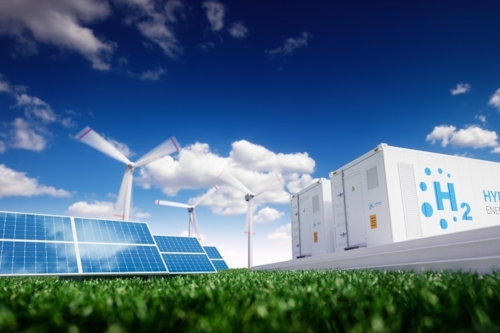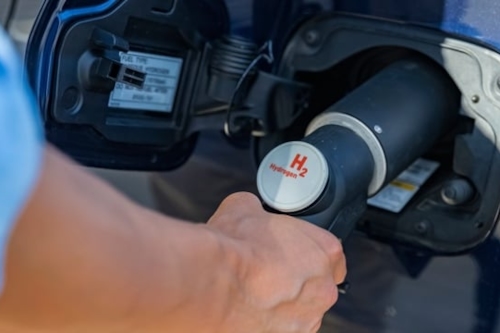Hydrogen production processes
Green hydrogen is produced from renewable energy sources such as wind and solar power, following the process of electrolysis, whereby water molecules are split into oxygen and hydrogen molecules using electricity.


Green hydrogen is produced from renewable energy sources such as wind and solar power, following the process of electrolysis, whereby water molecules are split into oxygen and hydrogen molecules using electricity.

One of the main fields of application for which hydrogen is being explored is the conversion of conventional gas distribution networks into hydrogen networks.

Another challenge for the entire hydrogen supply chain, and specifically for car manufacturers, is storage. Hydrogen has a very low density, which means it has to be stored at high pressure. Kiwa offers services like certification, testing and inspection for hydrogen storage.

The heating industry can play a leading role in the technological reconversion and consolidation of the hydrogen supply chain.

Hydrogen produced from renewable energy sources can make an important contribution to reducing greenhouse gas emissions from transport. Kiwa has an extensive test laboratory for hydrogen vehicle components.

Hydrogen produced from renewable energy sources can make industry less dependent on natural gas and coal, improving the sustainability of energy-intensive industrial processes.

Zero-emission transportation, greater flexibility of the electricity grid and cleaner industrial processes are all necessary to realise energy transition. Hydrogen, thanks to its characteristics, contributes significantly to the achievement of this ambitious goal. Discover the flammability limits in air, molecular mass, thermal conductivity, heating values and the other important properties of hydrogen in a clear infographic.

Autumn 2022 Kiwa has started two new projects in Portugal for two Portuguese gas district system operators: H2REN for REN Portgás and Retrofit for Floene. In commission of these two operators, Kiwa will assess the suitability of their gas distribution networks for hydrogen.

Recently Kiwa has been announced as a finalist for the Hydrogen Awards of 2023, where businesses are highlighted for their contribution to the hydrogen industry. The commissioning of our new hydrogen production plant has played a major role in the nomination.

Dutch energy distributor Alliander asked Kiwa to research and visualize the combustion of hydrogen at low concentrations. Kiwa developed a test box that can be filled with an hydrogen air mixture. Various ignition options have been installed in the test box. A special recording technique enables a depiction of ignition in slow motion as a shadow pattern. This video shows that at low concentrations, the probability of ignition of hydrogen is lower compared with natural gas.
The significance of hydrogen (H2) in facilitating the transition to cleaner energy cannot be overstated. Presently, hydrogen finds predominant use across industry, mobility and the built environment. This infographic, crafted by Kiwa's hydrogen experts, focuses on these three topics.
Discover the flammability limits in air, molecular mass, thermal conductivity, heating values and the other important properties of hydrogen a clear infographic.
The hydrogen supply chain will also require extensive education of stakeholders, from consumers, policy makers, engineers, manufacturers, installers and service teams to enable a complete hydrogen systems integration to be a reality.
Hydrogen produced from renewable energy sources can make an important contribution to reducing greenhouse gas emissions in road traffic. Kiwa has an extensive hydrogen vehicle component test laboratory. We also provide vehicle pre-shipment inspections, advise on hydrogen vehicle garaging and safety inspections of HRS installations.
In the coming years, hydrogen could play an important role in the energy transition in the built environment. Energy companies, network operators and local authorities are all experimenting with hydrogen applications. Kiwa is providing technical consultancy on several leading European hydrogen projects.
Hydrogen produced from renewable energy sources can make industry less dependent on natural gas and coal. Kiwa is advising industry on improving sustainability for energy-intensive industrial processes.
Studies carried out by Kiwa at Netbeheer Nederland and as part of the Leeds H21 City Gate project in the UK shows that the existing gas networks can be repurposed to distribute hydrogen, with some adaptations.